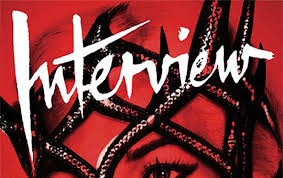 Gustavo Adolfo Dudamel Ramírez (born January 26, 1981, Barquisimeto, Venezuela) is a Venezuelan conductor and violinist. He is currently the Conductor and Music Director of the Los Angeles Philharmonic in Los Angeles, California. [...]
Gustavo Adolfo Dudamel Ramírez (born January 26, 1981, Barquisimeto, Venezuela) is a Venezuelan conductor and violinist. He is currently the Conductor and Music Director of the Los Angeles Philharmonic in Los Angeles, California. [...] 
Gustavo Dudamel, violin
GUSTAVO DUDAMEL - official site
 [Pic via]
[Pic via]60 Minutes biography
"The music saved me. I'm sure of this."
VENEZUELA
El Sistema, Venezuela's 34-year-old music tuition program
 Gustavo Dudamel and the Simón Bolívar Youth Orchestra
Gustavo Dudamel and the Simón Bolívar Youth Orchestra Venezuelan conductor Gustavo Dudamel performs with the Simón Bolívar Youth Orchestra during a free concert at the low-income neighborhood of La Vega in Caracas - 08/02/09 [Images.Google.com]
Venezuelan conductor Gustavo Dudamel performs with the Simón Bolívar Youth Orchestra during a free concert at the low-income neighborhood of La Vega in Caracas - 08/02/09 [Images.Google.com] [Daylife.com]
[Daylife.com] [Daylife.com]
[Daylife.com]LONDON
 Proms Go Caracas for Venezuelan Musicians
Proms Go Caracas for Venezuelan MusiciansThis week's world-class line-up will have to work overtime if it wants anything like the ecstatic reception received by the Simón Bolívar Youth Orchestra.
[EXCERPT]
NONTHELESS, the Lucerne Festival Orchestra - the culmination of hundreds of years of musical tradition - is going to have to work overtime if they want anything like the ecstatic reception that greeted the Simón Bolívar National Youth Orchestra of Venezuela last night. Under their magnetic chief conductor Gustavo Dudamel - himself just 26-years-old - this 200-strong band of young musicians from Latin America perfectly illustrated Henry Wood's ideal of "democratising the message of music and making its beneficent effect universal".
That these outstanding young performers should be appearing at the Proms at all is nothing short of miraculous, the result of an overwhelmingly successful programme - El Sistema - designed to turn around the lives of Venezuela's young people through the power of music. In a country where 38% of the population is officially below the breadline, it is astonishing to think that the number of orchestras has rocketed from two to over 200 in the last few decades, with more than a quarter of a million children now taking part in this incredible social experiment.
The Simón Bolívar Youth Orchestra is the culmination of this initiative, and they are truly a force to be reckoned with. Their slogan is "Play and fight!" and, in Shostakovich's 10th Symphony last night, that's exactly what they did. More than any other group of musicians I've seen, these guys played as though their lives depended on it. Perhaps, in some ways, they did. END
COMMENTS
[Guardian.co.uk]
WHAT a cruel and tragic youth scheme. Taking a group of young people from the poverty line and indoctrinating them in classical music where they will discover it's just about the toughest, most competitive, and most unfair profession in the world which does not seem to be able to escape from its terminal global decline.
The idea that classical music will positively transform their lives is a naive illusion. Young people should be discouraged from classical music if we genuinely care for their best interests. One or two might just be talented and lucky enough to develop a career from this scheme, but for most it will lead to nothing but frustration. -Outbrow
OUTBROW- Though you evidently write from long, bitter experience, I would submit to you that a "career" in classical music is rather besides the point for these kids.
Have a look at Lisa Blackmore's article in the independent about El Sistema: Redemption Songs (08/17/07). I think the opening anecdote about Legner, the 13-year-old gun-toting crack dealer who reinvented himself as a clarinet teacher after four years in the programme, speaks volumes. "If music had not arrived, I wouldn't be here today," he says. I'd say just one success story like that vindicates El Sistema's existence.
I'd also be interested to know, however, exactly what happens to these kids once they "graduate". Presumably they can't be in a youth orchestra forever. Several have obviously gone on to international careers, and there is apparently a very large audience for classical music in Venezuela, but you're right: there will never be enough long-term career paths open to El Sistema's 270,000 alumni.
OUTBROW does have a point, if narrowly cynical, about all those Venezuelan kids going into music and what they'll do afterwards. From a narrow, profession-driven viewpoint, that is a valid concern. I would submit, however, that teaching kids the skills, intellectual and social, that are needed to work in an orchestra can apply to many other fields outside of music as well, like business or medicine. Ideally, at least from this side of the pond, the vision is to have music as integral a part of children's upbringing as sport and athletics.
 BBC Proms 2007: Why I'm Worried About Gustavo
BBC Proms 2007: Why I'm Worried About Gustavo[Telegraph.co.uk - 08/16/07]
Young conductor Gustavo Dudamel has had a dizzying ascent to fame, but Geoffrey Norris warns that his talent needs careful nurturing
Gustavo Dudamel is a musician of precious and precocious talents. At the age of only 26, he has already conquered the hearts of concert-goers worldwide.
Two years ago, he made his London debut at the BBC Proms, deputising for the indisposed Neeme Järvi with the Gothenburg Symphony Orchestra. The orchestra snapped him up as its principal conductor, a post he assumes next month.
In the last season alone, he has appeared with such VIP orchestras as the Boston Symphony, Chicago Symphony, the Czech Philharmonic and the Philharmonia in London, as well as conducting Don Giovanni at La Scala in Milan. New York, San Francisco and Berlin beckon.
He reappears at the Proms this weekend with his Simón Bolívar National Youth Orchestra from Venezuela. And in two years' time he will take over from Esa-Pekka Salonen in charge of the Los Angeles Philharmonic.
Can this be a healthy way to carry on? Let me say at the outset that I am not by nature a doomsayer. Quite the reverse, in fact; but I am certainly one to urge caution when a rise to stardom has been so quick and so prodigious. In this celebrity-driven age, the temptation to go for a quick fix is very real, particularly when a musician is so personable and newsworthy.
 His is admittedly an extraordinary story of success through the humanitarian campaign known as El Sistema, established in Venezuela by José Antonio Abreu with the aim of involving youngsters from poor families in the playing of music, and giving them something to aspire to in a climate where drugs, disillusionment and crime are rampant.
His is admittedly an extraordinary story of success through the humanitarian campaign known as El Sistema, established in Venezuela by José Antonio Abreu with the aim of involving youngsters from poor families in the playing of music, and giving them something to aspire to in a climate where drugs, disillusionment and crime are rampant.The Simón Bolívar Orchestra is itself a manifestation of Abreu's dream; one of its double bass players, Edicson Ruiz, is now in the Berlin Philharmonic; and Dudamel travels the globe as an ambassador for the principle that triumph can be wrested from adversity.
The danger creeps in when his achievements are sensationalised, or when the mass of publicity outstrips his actual attainment. Not everything he does is flawless. Nor would you expect it to be in one so young, and the more circumspect reviews of his concerts have balanced praise with the pointing out of failings.
Guest-conducting here, there and everywhere might be useful in getting your name known, but it can also feed the media frenzy and does not necessarily contribute to the consolidation or broadening of technique and repertoire.
From that point of view, the Gothenburg appointment seemed an astute move, giving him a base from which to develop his craft with a strong management team prepared to nurture rather than exploit his gifts.
The high-octane Los Angeles job seemed on the face of it to overstep the mark, until it is remembered that Salonen was only 34 when he went there and that the city's 50 per cent Latino population will give Dudamel a link with potential audiences.
 The crucial thing is for Dudamel to be given time to mature naturally. He is a realist and knows that he is still - and will be for decades to come - on a learning curve. We as music-lovers must respect the fact that, however excited we might be by his infectious bonhomie on stage and his undoubted rapport with orchestras, he has not attained his full heights at the age of 26.
The crucial thing is for Dudamel to be given time to mature naturally. He is a realist and knows that he is still - and will be for decades to come - on a learning curve. We as music-lovers must respect the fact that, however excited we might be by his infectious bonhomie on stage and his undoubted rapport with orchestras, he has not attained his full heights at the age of 26.He has been wielding a baton since he was 14, and has had invaluable mentors in Claudio Abbado, Daniel Barenboim and Simon Rattle. But he has a future over and above the here and now.
There are encouraging signs that this is appreciated where it matters. His agent and his colleagues in Gothenburg, Los Angeles and Caracas are keen not to play up to celebrity culture.
Whereas in years gone by the media hype was in a state of tumult, nowadays his publicity is under the watchful eye of the New York-based Mary Lou Falcone. Every week, her office is inundated with requests for interviews or profiles, but the answer is generally a polite "Not yet."
This is all to the good. Rather than seeing a talent prematurely burnt out through over-exposure, we ought to have the chance in 40 years' time of relishing a conductor at his peak. END
Gustavo Dudamel conducts the Simón Bolívar Youth Orchestra at the BBC Proms
NEW YORK
 Gustavo Dudamel and the Israel Philharmonic Orchestra at Carnegie Hall [NewYorkSocialDiary.com]
Gustavo Dudamel and the Israel Philharmonic Orchestra at Carnegie Hall [NewYorkSocialDiary.com] Gustavo Dudamel during a rehearsal with the New York Philharmonic. Mr. Dudamel, 26, will be the guest conductor of the Philharmonic in concerts through Tuesday at Avery Fisher Hall.
Gustavo Dudamel during a rehearsal with the New York Philharmonic. Mr. Dudamel, 26, will be the guest conductor of the Philharmonic in concerts through Tuesday at Avery Fisher Hall.The Kid's Got Energy. Now Watch Him Conduct.
AND NOW, the real debut.
Gustavo Dudamel, classical music’s hottest young podium property, conducted several weeks ago at Carnegie Hall with the Simón Bolívar Youth Orchestra of Venezuela, his first appearance in New York.
This week he embarked on his maiden voyage with the New York Philharmonic, one of the oldest professional orchestras in the world.
How would this sometimes demanding bunch take to the tender 26-year-old Mr. Dudamel, who leaves a plume of hype behind him? How would this boyish, hyperenthusiastic wunderkind approach these musicians? Some are old enough to be his grandparents and have been in the Philharmonic as far back as the days of Bruno Walter, Dimitri Mitropoulos and Leonard Bernstein.
Answers came in a visit to rehearsals this week at Avery Fisher Hall before yesterday’s opening concert and performances tonight, tomorrow and Tuesday. [...]
And how did the players react?
Of a dozen interviewed, including some of the oldest and most recent members, the reaction was unanimously positive. But several said that Mr. Dudamel’s inexperience showed and expressed the caveat that an ultimate judgment would have to await his conducting of other composers such as Mozart and Haydn.
“He’s tremendously talented,” said Glenn Dicterow, the concertmaster. “He knows what he wants and is not afraid to ask for it.”
The musicians praised his energy and charisma, his authentic musicality and his capacity to listen carefully to what the orchestra was producing.
“Above all, I see a great joy in what he does,” said Mr. Drucker, the clarinetist. He and several others compared him to a young Bernstein.
The bass clarinetist, Stephen Freeman, said, “I see some of Lenny in him, just the exuberance, the abandon.”
Daniel Druckman, a percussionist, said of Mr. Dudamel: “He certainly hears everything, and he seems to have really good ideas. I think he’s terrific.”
Newton Mansfield, a violinist with the orchestra since 1961, said that more seasoning with high-caliber orchestras might allow Mr. Dudamel to talk less in rehearsal, communicate more with gestures and learn when to relax some of the tension in the musical line. But Mr. Mansfield added that Mr. Dudamel has “absolutely no problem getting the orchestra to respond to what he’s doing, and that’s a very important point.” END
 Gustavo Dudamel: Passing the Baton to the Next Wunderkind
Gustavo Dudamel: Passing the Baton to the Next WunderkindWhen conductor Gustavo Dudamel mounted the podium in his debut with the New York Philharmonic in November, he was carrying something special. Moments before he went onstage for the first of four concerts, the orchestra's archivist went to his dressing room to lend him a baton used by Leonard Bernstein. "I could not speak," says Dudamel. And he was speechless again, near the end of his last concert, when the baton suddenly snapped in two. But it wasn't a bad omen—even without that talisman, the comparisons to Bernstein (who broke plenty of batons himself) were starting to stick. [...]
WASHINGTON
 Gustavo Dudamel, Better Than the Hype
Gustavo Dudamel, Better Than the HypeYes, Virginia, there is a Gustavo Dudamel. There has been so much hype around the 27-year-old Venezuelan conductor that you may well have had reason to wonder. But Dudamel is the real thing -- as Virginia, and Washington, got to see when he led the Israel Philharmonic at the Kennedy Center, courtesy of the Washington Performing Arts Society, on Tuesday night.
Dudamel is a wild child of music. The advance billing portrays him as a natural talent brimming over with musical understanding untrammeled by a big ego, and onstage, that's just about what you get. The cushion of springy curls bobbing over the emphatic movements of his arms as he gestures and leaps and exhorts certainly project a state-of-nature exuberance.
But engaging though all this be, the really good news is that he goes beyond it. On Tuesday, for all the rough edges -- and there are rough edges -- he conducted with tremendous emotional specificity. He brought to the music an eye for detail that may have overlooked technical niceties, but could find strikingly nuanced things to do with a single phrase: pausing for a microsecond to give a percussive chord an element of surprise, or unleashing the orchestra's forces only to pull them back again to round out a musical statement with unexpected elegance. [...]
Dudamel appears to deal with the hype by trying to spread the praise to his players. He did not even take a solo bow, but stood, instead, among the orchestra to receive what by now has become his expected due of thunderous applause. END
Linda Ronstadt Hails Gustavo Dudamel in Testimony on Capitol Hill
In a remarkable testimony by Linda Ronstadt to the House Appropriations Subcommittee on Interior, Environment & Related Agencies Tuesday, the pop singer made an impassioned plea for government support of the arts. And Gustavo Dudamel, the Los Angeles Philharmonic's soon-to-be music director, was her poster boy. [...]
In the United States, we spend millions on sports because it promotes teamwork, discipline, and the experience of learning to make great progress in small increments. Learning to play music together does all this and more. [...]
LOS ANGELES

GUSTAVO DUDAMEL - LA Phil microsite
Bravo Gustavo! (game)
Ready to test your conducting skills? Use your keyboard to guide Gustavo as he conducts each section of the orchestra. Can you achieve the level of super maestro?
 Walt Disney Concert Hall prepares for Gustavo's arrival
Walt Disney Concert Hall prepares for Gustavo's arrivalWelcome to Los Angeles, Gustavo!
Venezuelan Conductor Gives Lessons in Geography
On his first day as music director of the Los Angeles Philharmonic, Venezuelan conductor Gustavo Dudamel gave a lesson in geography, namely what constitutes America.
A reporter asked the 28-year-old classical music sensation what he had on his iPod, to which Dudamel answered that he loved Latin music and was listening to the likes of Venezuelan salsa star Oscar D’Leon and Dominican crooner Juan Luis Guerra.
And then the reporter said: “You are in America now, what Americans?” Dudamel didn’t miss a beat and shot back ”I am talking about Americans!” — to which the room packed with journalists erupted in laughter and clapping.
That Latin America is indeed part of America is something that Dudamel brings up often, but always with good humor and patience. At his news conference he reiterated that America is one — Argentina, Venezuela, Mexico, the United States, all included. That message is likely to resound in Los Angeles, a city that is half Hispanic and home to millions who migrated from southern portions of the Americas. END
Gustavo Dudamel Webisode #1
A behind the scenes look at Gustavo's first days as LA Phil's Music Director.
The word on the street is this guy is kind of a rocker in the world of conductors. -Jack Black
Panorama: On the Red Carpet at Walt Disney Concert Hall
Eloisa Maturen, wife of Gustavo Dudamel, arrives to photographers' flashes for Dudamel's inaugural performance at Walt Disney Concert Hall as the Los Angeles Philharmonic's music director.
Right up top! Right up top!
Second row, right here!
To your right, please!
Eloise!
Way up high!
Excuse me, can you look right back here?!
Over the shoulder! To your left!
Let's see those earrings!
Panorama: Taking in the Dudamel Concert from Out of Doors
A crowd in the Music Center plaza watches Gustavo Dudamel on a giant plasma screen as he conducts his first formal concert as music director of the Los Angeles Philharmonic at Walt Disney Concert Hall across the street.
 Dudamel Wows 'Em on Opening Night
Dudamel Wows 'Em on Opening Night[LATimes.com - 10/08/09]
THURSDAY night was a win-win for Los Angeles.
A dressed-to-the-nines audience, dappled with civic movers and shakers, eschewed the Dodgers' thrilling conclusion and instead experienced Gustavo Dudamel’s thrilling beginning at Walt Disney Concert Hall as music director of the Los Angeles Philharmonic.
Both, as it turned out, were celebratory moments to savor.
At 7:18 p.m. the 28-year old Venezuelan launched into City Noir, John Adams’ filmic, jazz-inflected 35-minute paean to Los Angeles commissioned by the Philharmonic.
The bright, sensual presentation of the piece drew a sustained standing ovation, not always the treatment audiences afford contemporary classical music. It also earned Dudamel an embrace and several hugs from composer Adams, who seemed very pleased with his work’s world premiere performance.
After the intermission, Dudamel dipped into Gustav Mahler’s Symphony No. 1. The orchestra rendered a stately, burnished reading that again brought listeners to their feet after the final crescendo sounded at 9:18 p.m. Dudamel came out for five bows, which he took not from the podium but among his orchestra. Under a cascading shower of magenta and silver foil confetti, he then made the universal signal for “Let’s go get a drink,” and the evening morphed into a party outside on a closed-down Grand Avenue.
The concert was broadcast live on KUSC-FM and simulcast on video screens to hundreds who had spread picnic blankets throughout the Music Center plaza and took seats inside the Dorothy Chandler Pavilion. The concert will be shown Oct. 21 on PBS' Great Performances. END
Gustavo Dudamel and the Los Angeles Philharmonic: The Inaugural Concert
(PBS preview)
He's the hottest young conductor on the scene today - "The Dude" - Gustavo Dudamel...
 Gustavo Dudamel Lights Up LA
Gustavo Dudamel Lights Up LAThe arrival of the world’s hottest young maestro, Gustavo Dudamel, at the Los Angeles Philharmonic caused a sensation
[EXCERPT]
DEBORAH BORDA (chief executive of the orchestra) denies that Dudamel’s ability to reach the Latino part of Los Angeles influenced her decision. But, given that 48 per cent of the Los Angeles population is of Latino origin, that has to be a plus. More important to her is his connection with El Sistema, which the LA Phil has seized on as a model for its own project. It has already set up the Youth Orchestra of Los Angeles (YOLA), and it was this orchestra that formed the centrepiece of Dudamel’s debut at the Hollywood Bowl the previous Saturday.
“It was such a moving experience, to see 18,000 people there,” says Borda. “It was like a picture postcard of Los Angeles’s cultural diversity, and the other great thing was that it was all about the youth of this city. We had jazz bands, we had gospel choirs, and then finally Gustavo came on stage with all these little seven- and eight-year-olds of YOLA, with all their moms and dads in the audience.”
This is all fine and dandy, but can a man born and raised so far from the nerve centres of the classical tradition and who never attended an élite conservatoire really compare with the older maestros that head other American orchestras – Michael Tilson Thomas in San Francisco, Riccardo Muti in Chicago, Charles Dutoit in Philadelphia?
The people who can answer that question best are, of course, the players. “There are lots of conductors out there who have great ideas, but when they get up on the podium they seem total idiots,” says the LA Phil’s concertmaster, Martin Chalifour. “But the great thing about Gustavo is that he has a great technique; he’s very clear with the baton. And he’s absolutely driven to find the emotional heart of the music.”
I see evidence of that myself at the rehearsal. “No, you should start later, and wait more at the top,” Dudamel says of a particular sliding phrase in Mahler’s First Symphony, whose tendency to sentimentality he clearly wants to nip in the bud. It takes several goes and more fine-tuning to get it right, but when he’s satisfied he jumps up and says “Good!” with such unbuttoned joy that the players can’t help laughing.
The next day, at the concert, that tremendous energy and joy carried all before it. The entire be-furred and tuxedoed audience hollered and rose to its feet, and a rain of glitter came down from the ceiling. LA has a new star, and it’s clearly going to make the most of him. END
 Gustavo Dudamel and the LA Philharmonic Inaugural Gala (pics)
Gustavo Dudamel and the LA Philharmonic Inaugural Gala (pics) Gustavo Dudamel Concert Gala (pics)
Gustavo Dudamel Concert Gala (pics) Dudamel's Great, But He's Not the Whole Show
Dudamel's Great, But He's Not the Whole ShowIT'S NOT unusual for a global city to recruit an international talent like Gustavo Dudamel to conduct its symphony orchestra. (Alan Gilbert, the new conductor of the New York Philharmonic, is the first native New Yorker to hold the post since the institution was founded in 1842.) What is unusual is how the Los Angeles orchestra is using the high-culture, Venezuelan-born wunderkind to build a rapport with this city's native-born Latino masses. Gauging from the widespread, deliriously upbeat hoopla -- and taking into account Dudamel's exceptional qualities and charisma -- maybe it'll even work.
But L.A.'s cultural elite shouldn't mistake the Dudamel phenomenon for a solid strategy to reverse its historic negligence toward the city's Latinos. [...]
The philharmonic leadership knows that it -- as with all major local cultural institutions -- must engage more Latinos if it is to survive in the future. The initiative is as much about building audiences as it is about producing musicians, and the big public push behind such an ambitious, long-term program is long overdue. Which brings us back to the issue of historical negligence.
Will the elites' latest, brightest foreign hire undo a tradition of local cultural neglect? Dudamel's star quality and his own proclivities could go a long way in that direction. But he would be the exception that proves the rule. Other institutions seeking to connect with an ever more diverse and ever more Latino city can't rely on finding their own perfect Dudamel. So if they want to diversify their staffs and their audiences, they should start looking in their own backyards. END
COMMENT
[LATimes.com]
Fantastic. One of the brightest points on this locality (LA Phil) manages to capture one of the most promising talents, in an era of declining donations and support from the "elite" - and you put it all down to race. Nice. Just once, Mr. Rodriguez - try to understand that music can transcend all of the categorization you refer to - Venezuela has proven that - and that Mr. Dudamel's enthusiasm and remarkable music maturity can only enhance a world class orchestra for all of us.
 Gustavo's Recording of Mahler Symphony No. 1 Tops Billboard Classical Charts
Gustavo's Recording of Mahler Symphony No. 1 Tops Billboard Classical Charts[GustavoDudamel.com - 11/04/09]
GUSTAVO DUDAMEL’s latest recording, Mahler: Symphony No. 1 From The Inaugural Concert with Gustavo Dudamel and the LA Philharmonic, has debuted in the number one spot on Billboard’s Classical Traditional and Classical Overall charts. The album is available exclusively through iTunes on the DG Concerts label. END
 THIS WEEK IN CLASSICAL MUSIC
THIS WEEK IN CLASSICAL MUSIC[KBAQ.org - 05/03/09]
New Los Angeles Philharmonic Music Director Gustavo Dudamel is a believer in music education—so much so that the Philharmonic is announcing a new fellowship program proposed by the 28-year-old conductor that would allow the four fellows to spend six weeks with Dudamel, the Philharmonic, and guest conductors. They will assume responsibilities normally given to an assistant conductor—like subbing for Dudamel if he gets sick—the fellows also will lead the orchestra’s youth symphonies and possibly community concerts. The first four winners have been named—they are: Diego Matheuz, Concertmaster of the Simon Bolivar Youth Orchestra of Venezuela, Christian Velasquez, Music Director of Venezuela’s Aragua Juvenile Symphony Orchestra, David Afkham, Assistant conductor of the London Symphony Orchestra, and Perry So, the Assistant conductor of the Hong Kong Philharmonic. END
LINKS
 Gustavo Dudamel - The 2009 TIME 100
Gustavo Dudamel - The 2009 TIME 100With what appears to be unlimited talent and charisma, Gustavo Dudamel has invigorated the sometimes staid world of classical music. His performances are ecstatic affairs, with musicians and audiences unable to resist his infectious joy. His concerts often end with his hugging each member of the orchestra.
Edinburgh Festival 2008: Gustavo Dudamel, the Man Who Made the Swedes Swing
You can be the best musician in the world, but the instinct to keep the attention of hundreds of people is impossible to learn. It's something natural. I think this is the secret of a good conductor.
Blazing Trip to a Scaffold with Dudamel
The Gothenburg musicians clearly adore their young conductor, who takes up the post of Chief Conductor of the Los Angeles Philharmonic next year. They play with zest rather than finesse, at their best in exciting fortissimo gusts and storms that made up for some poor woodwind intonation and less than tip-top ensemble throughout.
How YOLA is Changing Lives
Last Saturday in Los Angeles, conductor Gustavo Dudamel made his debut with a new orchestra. Not some chamber-scale off-shoot of the Los Angeles Philharmonic, where he takes up the music directorship in a few months, but a group of about a hundred children, aged from 7-14, who play with YOLA, the Youth Orchestra of LA.
Gustavo Dudamel: A Maestro and His Magic Simón Bolívar Orchestra
He was sitting, half-sitting, standing, bouncing on both feet, goading, correcting and running up the aisle of the Royal Festival Hall to conduct behind the front stalls. If it was no ordinary orchestra rehearsal, then that was because he is no ordinary conductor.
Gustav Dudamel: The Natural
So what makes Dudamel so special? The role of a conductor is at once comprehensible and untranslatable. The task is dauntingly clear: to mold about 100 anarchic artists into his own, singular vision. To do so, he must use only visible cues with musical players necessarily attuned to the aural — a sort of sign language not for the hearing impaired, but the hearing enhanced.
Philharmonia Orchestra: The Sound Exchange: Gustavo Dudamel
Videos: Conductor's Academy (We join Gustavo Dudamel as he works with three young conductors), Interview 08 and Interview 06
The New York Times: Gustavo Dudamel
NYT articles, photos, audio and video.
Daylife.com: Gustavo Dudamel
Articles, photos, video and tweets.
MORE
gustavo.jpg) Growing up in Barquisimeto, Venezuela [LAPhil.com/Gustavo]
Growing up in Barquisimeto, Venezuela [LAPhil.com/Gustavo] The maestro at work
The maestro at work [LATimes.com]
[LATimes.com] The Promise of Music
The Promise of MusicOVERVIEW
The Promise of Music is a full-length feature film about the story of Gustavo Dudamel and the Simón Bolívar Youth Orchestra of Venezuela. The film documents Dudamel preparing his orchestra in Caracas for their upcoming concert at the Beethovenfest in Bonn, 2007. Following different young musicians in their day-to-day lives, the film shows how classical music has the capability of changing both the individual and their environment.
REVIEW
I will be forever thankful to Mr Sanchez and Gustavo Dudamel for this beautiful picture of my country and its people. This DVD shows what Venezuelans are capable of if only they are allowed to develop their potential. Besides this, the Bonn Concert is just fabulous. The Eroica performance can be rated with those of the great orchestras of the world. I had listened to some previous recordings of the Simon Bolivar Orchestra and Mr Dudamel and thought they were OK, but this one changed my mind completely. From now on I will get any future recordings from these young and amazing people.
 Gustavo Dudamel: Discoveries
Gustavo Dudamel: DiscoveriesREVIEW
IF YOU are looking for a gift for someone beginning their odyssey into classical music, you could do worse than send them the latest DGG sampler release of repertoire standards spiced with two dances by the Mexican composer Arturo Márquez. Why? The conductor is Gustavo Dudamel, product of Venezuela’s world-famous El Sistema who has just taken over the helm of the Los Angeles Philharmonic. The orchestra is the Simón Bolivar Youth Orchestra of Venezuela, and except for two or three instances of strange horn sounds, you’d be unlikely to detect that the players are anything less than first-class. [...]
 El Sistema: Music to Change Life
El Sistema: Music to Change LifeREVIEW
AS I AM in the music field in Mexico,trying with others to make the same project work here, I was able to see this extraordinary documentary several months ago. It was a private showing, and almost the entire audience, friends,maestros, musicians, were weeping through it - deeply moved and filled with hope.
They'd already seen or owned "Tocar y Luchar", the first beautiful film on El Sistema, but now Maria Stodtmeier and Paul Smaczny have gone deeper, and have captured what is beyond words. Their general response of unmitigated admiration for El Sistema's founder, José Antonio Abreu whom Claudio Abbado calls "a saint".
And now, when you see what musicians, such as the true ambassador Gustavo Dudamel,the Simón Bolívar Orchestra, to mention just a few, have emerged from the project,you'll marvel at why it took more than thirty years for us in North America to catch on.
El Sistema has expanded since the first film exposure, and to me, part of the miracle is how children play as if they were adults - no passage of time seems present. Their dedication - theirs and that of the teachers and staff who work with Abreu - is almost surreal. Where did all these old souls in children's bodies come from? Is this what happens when they're given a chance to experience classical music? When you listen to their wisdom, so beautifully reflected in the many levels of the project, you'll probably be speechless. And hopeful.
There's a great deal more to say about this remarkable documentary which I hope anyone with the least interest in changing the world, orders sight unseen. Paul Smaczny of EuroArts, who has produced the world's finest concert films on DVD, together with the brilliantly sensitive Maria Stodmeier, have done us all a great favour.
I thank them a thousand times over...and when you see some of the little touches - such as a hawk slowly hovering over dense and sprawling Caracas, free and soaring on the wind - you'll understand the spiritual message of the film far beyond words.
El Sistema (trailer)
It was my first day in the chamber orchestra so I wanted to be early, but I got shot in the leg so I couldn't go...
Salzburg, 2008

























































